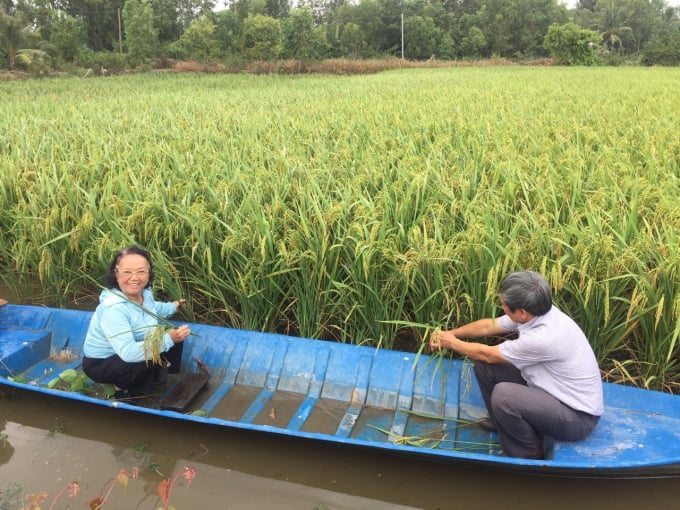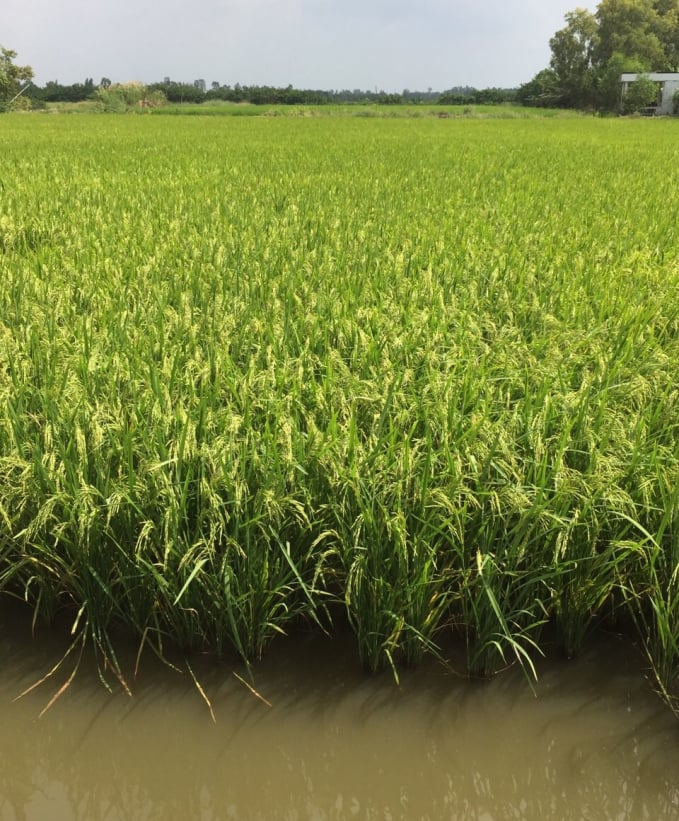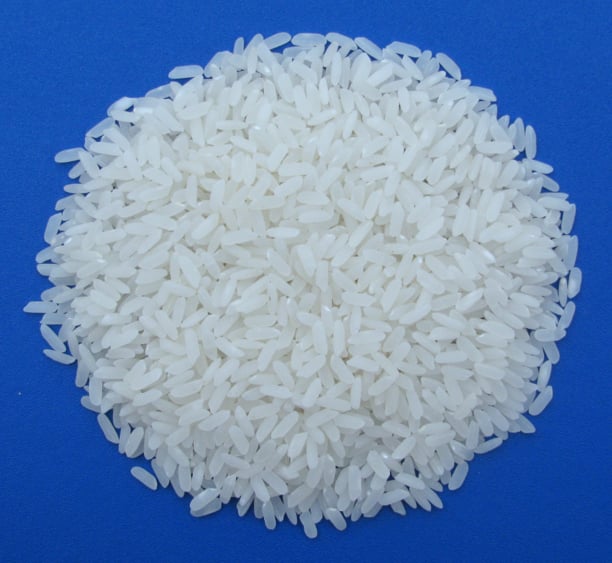June 17, 2025 | 02:48 GMT +7
June 17, 2025 | 02:48 GMT +7
Hotline: 0913.378.918
June 17, 2025 | 02:48 GMT +7
Hotline: 0913.378.918
In the past, when it comes to hybrid rice, farmers usually thought of high yield but low quality rice varieties, which were not aligned with the consumer’s taste. However, in 2019, rice researchers of the Crops Research and Development Institute - Vietnam Academy of Agriculture had successfully developed a hybrid rice variety that currently has the best quality of paddy and rice among selected and domestically bred hybrid rice varieties.
Lai Thom 6 is a two-line hybrid variety, with TS6 as the female line, and R6 as the male line. Both the parent lines are developed domestically, which signifies complete initiative in seedling source for production. The variety Lai Thom 6 has been officially acknowledged by the MARD since December 2019. In addition, Lai Thom 6 is being test-planted in Mekong Delta provinces since the 2019 autumn-winter crop on rice soil intercropped with shrimp (rice - shrimp soil).

Lai Thom 6 on rice-shrimp soil in the 2019 autumn-winter crop in Hong Dan commune, Phuoc Long district, Bac Lieu province.
Lai Thom 6 has a short growth period, in the northern provinces the growing time of the spring crop is from 115 to 120 days, the summer-autumn crop is from 95-100 days, and the crop season is from 100-105 days. In provinces of the Mekong Delta, Lai Thom 6 has a growth period in the winter-spring crop from 110-115 days, the summer-autumn and autumn-winter crop from 95-100 days.
Lai Thom 6 has medium height, thick leaves, light green, large, hard stem, long panicle, and closely packed seeds. The yield of Lai Thom 6 in the Northern provinces is 7.0 to 7.5 tons/ha (spring crop), 6.8-7.2 tons/ha (summer-autumn crop or seasonal crop). In the Mekong Delta provinces, on rice-shrimp cultivation land, Lai Thom 6 has a yield of 6-8 tons/ha/crop.

Lai Thom 6 does not fall on the rice-shrimp soil.
Lai Thom 6 has good cold tolerance, fall resistance and alum tolerance. Especially on the rice-shrimp soils in the Mekong Delta provinces, Lai Thom 6 shows its superiority in resistance to spillage and alum tolerance. This is a very important factor in rice-shrimp farming. Lai Thom 6 also has good resistance to pests and diseases, very mild infection in terms of rice blast, mild to moderate infection with blight, mild infection with sheath blight, brown planthopper, stem borer, rice skipper.


Image of Lai Thom 6’s rice.
Lai Thom 6 has good rice quality, elongated grains, low chalky rate (from 0.9 to 2.1%), amylose content from 12 to 14% CK, protein content from 8.9 to 9.1% CK. The rice is white and shiny, wide-bloomed when cooked, sticky, chewy, aromatic, strong flavor.
![Turning wind and rain into action: [4] Bringing climate bulletins to remote and isolated areas](https://t.ex-cdn.com/nongnghiepmoitruong.vn/608w/files/linhnhp/2025/06/14/1152-z6704423696987_15fd32ffc26d590d204d520c9dac6786-nongnghiep-151141.jpg)
(VAN) The Vietnam Agriculture and Nature Newspaper interviewed Mr. Vu Thai Truong, Acting Head of Climate Change and Environment at UNDP Vietnam, to gain deeper insight into how climate bulletins are delivered to farmers.

(VAN) In Tien Giang, a high-tech shrimp farm has developed a distinctive energy-saving farming model that has yielded promising results.
![Turning wind and rain into action: [3] 300.000 farmers benefit from agro-climatic bulletins](https://t.ex-cdn.com/nongnghiepmoitruong.vn/608w/files/news/2025/06/12/e5a48259d6a262fc3bb3-nongnghiep-125122.jpg)
(VAN) The agro-climatic bulletin has become a valuable tool for farmers in the Mekong Delta. After more than five years of implementation, the initiative is gradually being expanded nationwide.
![Turning wind and rain into action: [2] Providing forecasts to the people](https://t.ex-cdn.com/nongnghiepmoitruong.vn/608w/files/news/2025/06/12/e5a48259d6a262fc3bb3-nongnghiep-103927.jpg)
(VAN) In addition to improving the quality of hydrometeorological forecasts, putting forecast bulletins into practical use is crucial for production and disaster prevention.

(VAN) Blue carbon is receiving attention for its rapid absorption capacity and vast potential. It represents a promising nature-based solution to respond to climate change.
/2025/06/11/3507-1-161904_583.jpg)
(VAN) Seagrass beds and coral reefs serve as 'cradles' that nurture life in the ocean depths, creating rich aquatic resources in Vietnamese waters.
![Turning wind and rain into action: [1] Forecasting for farmers](https://t.ex-cdn.com/nongnghiepmoitruong.vn/608w/files/news/2025/06/11/e5a48259d6a262fc3bb3-nongnghiep-111919.jpg)
(VAN) Weather is no longer just a matter of fate. Forecasts have now become an essential companion for farmers in every crop season.